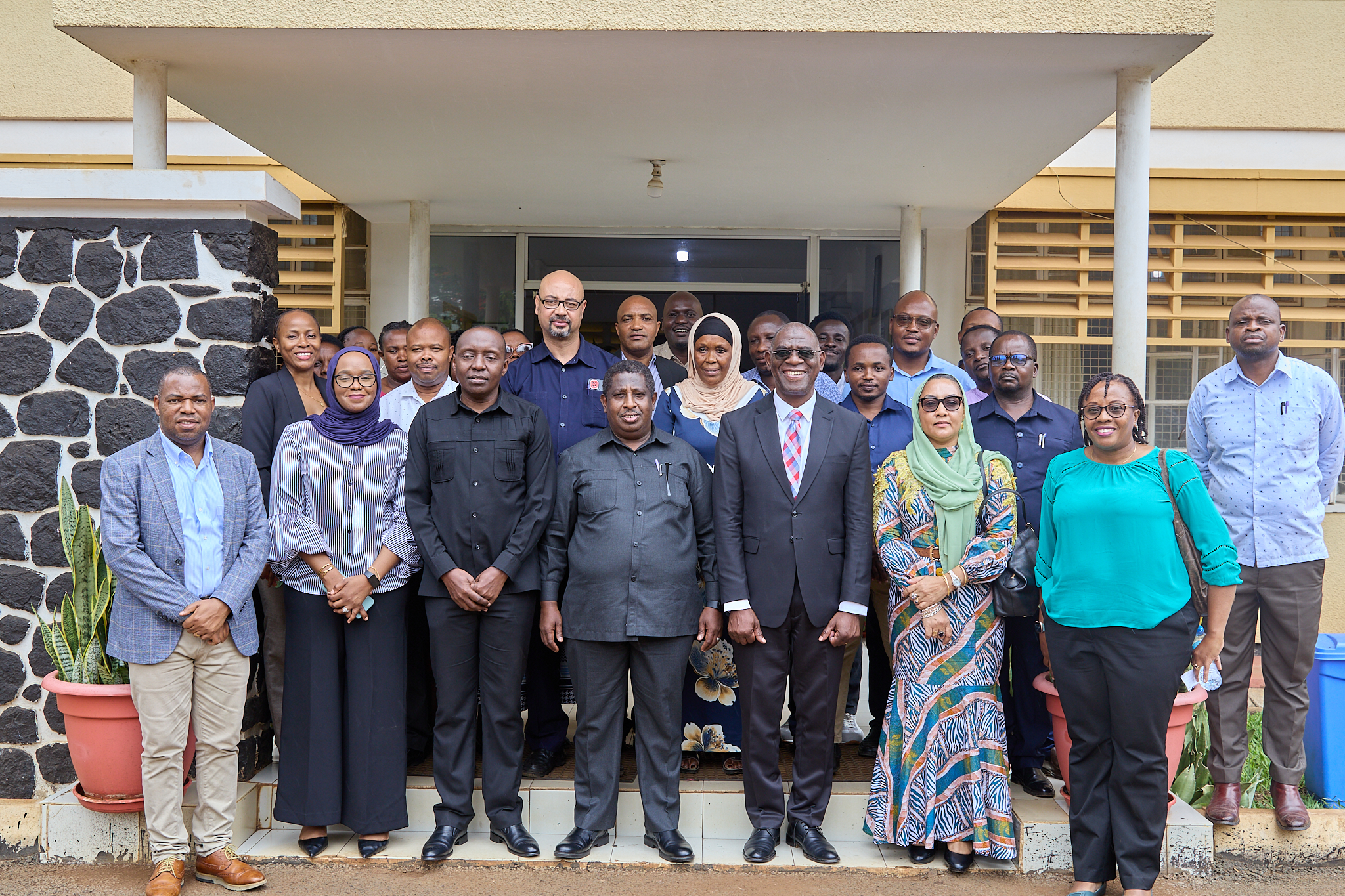
LAUNCH: NEST360 phase 2 kicks off in K’njaro

On December 2 2024, the NEST360 program, implemented by the Ifakara Health Institute and its partners in Tanzania, held its Phase II launch at the Regional Commissioner's office in Moshi, Kilimanjaro. The event was graced by Regional Commissioner Nurdin Babu, who officially launched the second phase of the program in the region.
Opening remarks from Ifakara
Dr. Honorati Masanja, Ifakara’s Chief Executive Director and NEST360 Country Lead, emphasized the program’s alignment with global targets in his remarks: “Our goal, as outlined in the Sustainable Development Goals, is to reduce neonatal mortality to no more than 12 per 1,000 live births by 2030.”
Reflecting on the program’s achievements, he noted: “In Phase 1, from 2019 to 2023, NEST360 developed evidence-based interventions that have benefited over 100,000 newborns annually across 68 hospitals in Malawi, Tanzania, Kenya, and Nigeria. At Kilimanjaro Christian Medical Centre (KCMC), the program expanded neonatal care by investing $75,000 in equipment, infrastructure, and capacity-building initiatives while mentoring healthcare workers to ensure sustainability.”
In Phase II of NEST360, Kilimanjaro will serve as a hub for neonatal care, with efforts focused on strengthening nearby spoke facilities, including Rombo, Hai, Same, Siha District Hospitals, and Mawenzi Regional Hospital. Planned initiatives include upgrading infrastructure and equipment, training healthcare workers, implementing quality improvement projects, and enhancing data systems. This hub-and-spoke model aims to expand access to neonatal care, reduce the burden on central facilities, and streamline referrals, creating an efficient, sustainable, and equitable system to improve newborn survival in the region.
Govt officially launches phase II
In his speech at the kick-off, Commissioner Babu highlighted the critical role of stakeholders in advancing neonatal care in Tanzania. He stated “ This gathering offers a unique platform for us, as stakeholders, to reaffirm our collective commitment to go beyond business as usual. Our goal is clear: to significantly reduce newborn mortality and morbidity in Tanzania.”
He emphasized that the purpose of this meeting was to raise awareness about the urgent issue of newborn deaths in our country and to facilitate the collaboration and leveraging of resources among partners to ensure that our most vulnerable—our newborns—receive the comprehensive care they deserve.
Commissioner Babu praised the NEST360 Program's three strategic pillars—delivering innovation, fostering education, and implementing evidence-based care—for their alignment with Tanzania’s neonatal care goals. Phase 2 introduces a hub-and-spoke model to enhance accessibility and efficiency, with KCMC as the hub and spoke facilities including Rombo, Hai, Same, Siha District Hospitals, and Mawenzi Regional Hospital. This approach aims to provide comprehensive, high-quality care across the region.
In closing, Commissioner Babu called for renewed commitment, collaboration, and innovative action to ensure every Tanzanian newborn has a fighting chance at life.
About NEST 360
Newborn Essential Solutions and Technologies (NEST360) is a global consortium committed to reducing newborn deaths by 50% in hospitals, currently conducted in Tanzania, Kenya, Malawi, and Nigeria. The program is an evidence-based model for sustainable health system change to close the gaps in technology, markets, and human resources for the implementation of quality hospital-based newborn care on a national scale.
In Tanzania, the NEST program works in close collaboration with the Ministry of Health, to improve the quality of comprehensive newborn care units as stipulated in the National guideline for neonatal care and the establishment of neonatal care units.
